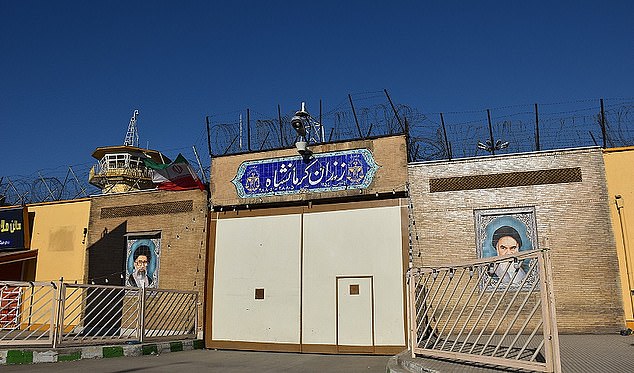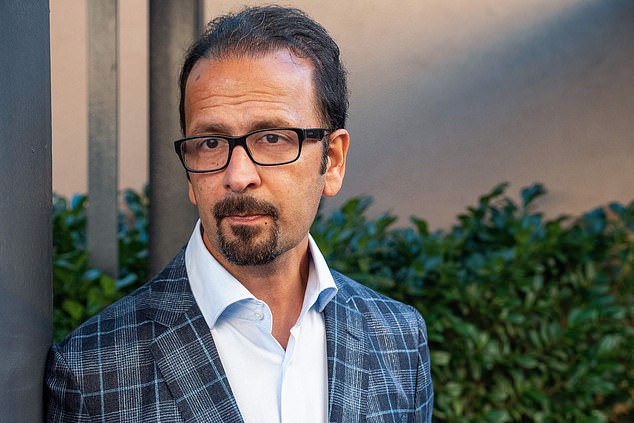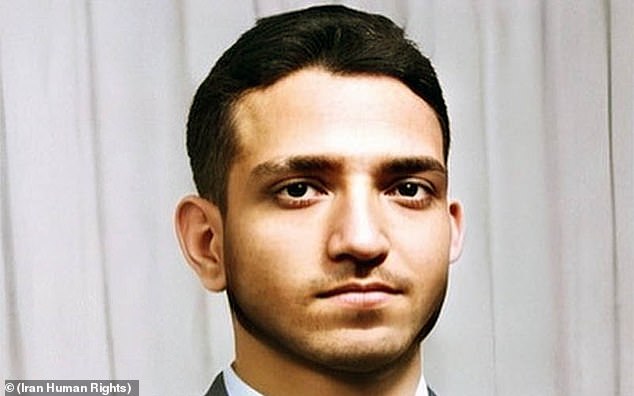A Jewish man has been executed in Iran for murder after defending himself from a knife attack, as the man’s family refused to accept “blood money” when they learned of his religious background.
Arvin Nathaniel Ghahremani was executed today after a two-year battle waged by his family to save his life.
The 20-year-old was hanged in the central prison in the western city of Kermanshah after being found guilty of murder following a savage street fight against Amir Shokri in 2022.
Shokri’s family, which has ties to senior officials in Tehran, had originally accepted blood money, under Iran’s Islamic retribution law, which allows a financial alternative to execution.
When Ghahremani was arrested, he was originally identified as a Shia Muslim and the family agreed to accept money to forgive him.
Arvin Nathaniel Ghahremani (pictured) was executed today after a two-year battle waged by his family to save his life.

The 20-year-old was hanged at the central prison (pictured) in the western city of Kermanshah.
But they later demanded Ghahremani’s execution when they realized his Jewish heritage, according to Norway-based Iran Human Rights.
The charity’s director, Mahmood Amiry-Moghadam, said: ‘Amid threats of war with Israel, the Islamic Republic executed Arvin Ghahremani, an Iranian Jewish citizen.
“However, in addition to this, Arvin was Jewish, and institutionalized anti-Semitism in the Islamic Republic undoubtedly played a crucial role in the execution of his sentence.”
Human rights organizations say Ghahremani acted in self-defense after the deadly altercation.
Mr. Amiry-Moghadam said The telegraph: ‘There are so many flaws in the case.
‘It was a group fight in which one person died and Arvin was the only one who stayed at the scene and waited for the ambulance to arrive to help.
“It was not a premeditated murder.”
Under Iran’s religion-based laws, a non-Muslim who kills a Muslim can receive the death penalty.
But if a Muslim kills a non-Muslim, he is only required to give financial compensation to the family.
Ynet reported earlier this year that Shokri’s family was pressured by a close aide of Ayatollah Ali Khamenei and the intelligence division of Iran’s Islamic Revolutionary Guard Corps not to accept the financial deal.
According to the defense, it was claimed that Ghahremani and Shokri were working out at a gym.
Shokri owed money to Mr Ghahremani and a fight broke out.
Shokri stabbed Ghahremani with a knife, but the Iranian-Jew was able to wrestle the weapon away from him, causing a fatal wound to his back.
His family said the trial ignored key aspects of the defense, including efforts to get Shokri to a hospital and save his life, details missing from court documents.

The charity’s director, Mahmood Amiry-Moghadam (pictured), said “this case has many flaws.”
Iran’s Islamic regime is widely accused of anti-Semitism, which critics say prevents fair trials in religious despotism.
Many Jews fled Iran after the Islamic Revolution of 1979.
Jewish citizens are a small minority in Iran, a country of 85 million people, of which it is estimated that only 20,000 remain.
Iran executed at least 834 people last year, the highest number since 2015 in the Islamic republic.
The number of executions that Iran has carried out by hanging in recent years increased by approximately 43 percent compared to 2022.
At least 22 women were executed, the highest number in the last decade, according to the report.
Fifteen of them were hanged on murder charges and NGOs have long warned that women who kill an abusive partner or family member risk being hanged.
It was only the second time in two decades that more than 800 executions were recorded in a year, after 972 executions in 2015, according to a joint report by Human Rights of Iran and Paris-based Together Against the Death Penalty.


